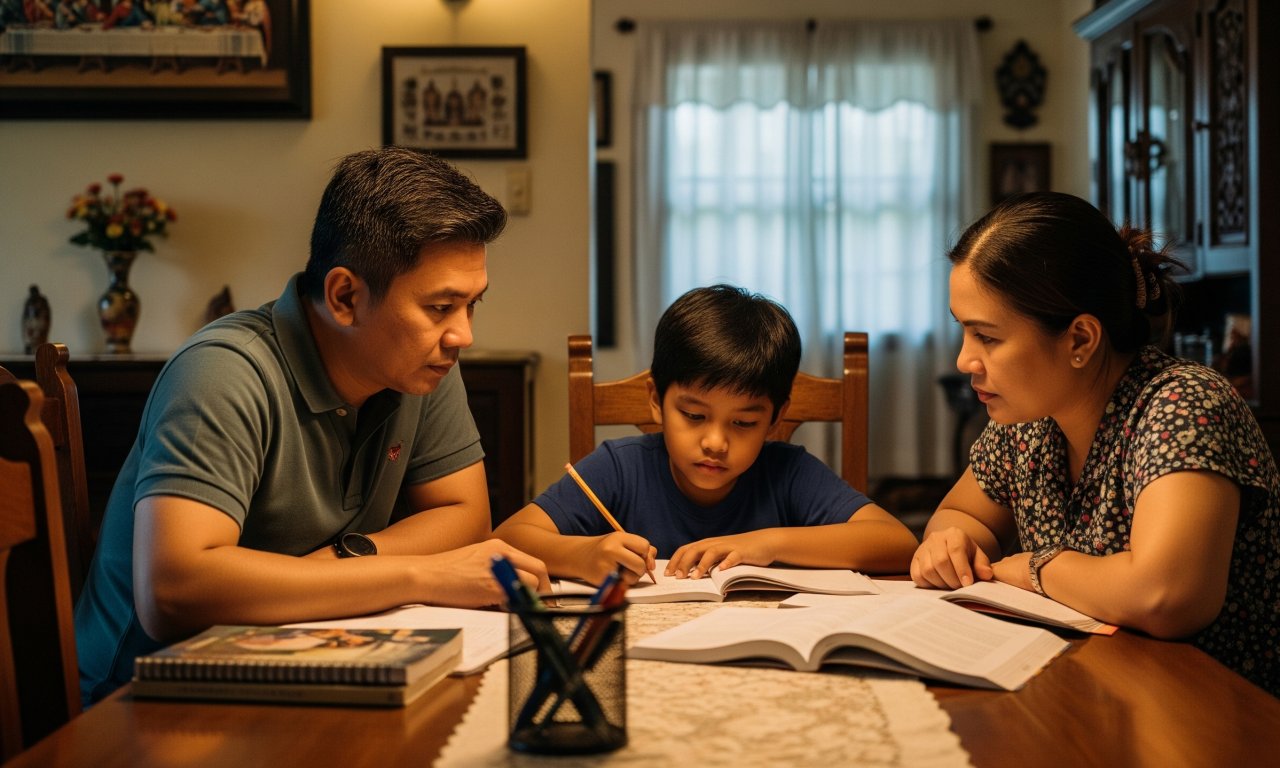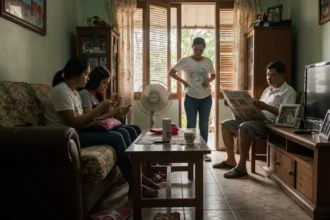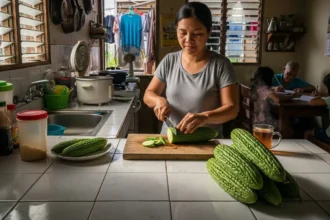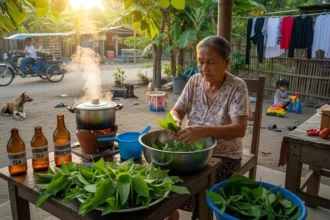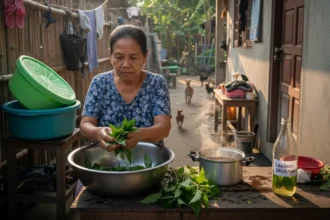Parenting in the Philippines is as diverse as the islands themselves. Some households are run with military precision, others with endless indulgence, and many try to find a balance in between. But in today’s fast-paced world, with the pressures of modern life and the influence of technology, the question lingers: What kind of parenting style works best for Filipino kids?
- ⚖️ Strict Parenting: The Traditional Approach
- 🎁 Spoiling: The Overindulgent Style
- 🌿 Balanced Parenting: The Middle Ground
- 🌏 The Filipino Context: Why Styles Differ
- 👶 Effects on Children: What Research Says
- ✅ Practical Tips for Pinoy Parents
- ❓ Frequently Asked Questions (FAQ)
- ✨ Final Reflection: The Heart of Filipino Parenting
- 🧭 References
In this feature, we’ll explore the roots of strict Pinoy parenting, the softer approach of spoiling, and what it means to raise children with balance. More importantly, we’ll look at how these styles shape a child’s future in terms of discipline, resilience, and emotional well-being.
⚖️ Strict Parenting: The Traditional Approach
Strict parenting in the Philippines has long been tied to cultural values of obedience, respect, and hierarchy. It reflects the deeply rooted belief that parents and elders know best, and that children should submit to authority. In many Filipino households, “No means no” isn’t just a phrase-it’s a way of life. From setting curfews to monitoring academics, this approach keeps family order firmly in the hands of the parents.
For many who grew up under strict parents, the benefits are undeniable. This style often instills self-control, perseverance, and respect for authority. Children learn early that every action has consequences-good grades bring rewards, while disobedience leads to punishment. Teachers and community leaders frequently describe children from strict households as focused, disciplined, and well-mannered. These traits serve them well in environments where rules and structure are valued.
However, strictness has its pitfalls. Studies on authoritarian parenting warn that fear-based discipline can backfire. Kids may obey outwardly but harbor resentment, following rules not out of understanding but out of fear of punishment. This can result in strained parent-child relationships, emotional distance, or even outright rebellion during adolescence when children begin to push for independence. In some cases, children raised under extreme strictness may struggle with decision-making later in life because they were rarely allowed to think for themselves.
It’s also important to recognize how strict parenting interacts with Filipino culture. Practices like corporal punishment, scolding in front of relatives, or using hiya (shame) as a tool of discipline have been normalized in many families. While these methods may produce short-term obedience, they risk damaging a child’s self-esteem and trust.
The real challenge for Pinoy parents is finding balance. Rules and discipline are essential, but they should be paired with affection, explanation, and encouragement. When children know that boundaries come from love, not just control, they develop both resilience and emotional security. A hug after a stern lecture, or an explanation of why a rule exists, can transform strict parenting from fear-based authority into firm but nurturing guidance.
🎁 Spoiling: The Overindulgent Style
On the other end of the parenting spectrum is the indulgent style, often referred to as “spoiling.” Filipino culture, known for its warmth, generosity, and family-centered values, sometimes leans heavily in this direction. Grandparents-especially doting lolos and lolas-are famously guilty of giving in to every whim of the apo, believing that it’s their role to shower unconditional love without limits.
Spoiling often takes the form of:
- Buying children anything they ask for, from toys and gadgets to unnecessary luxuries.
- Avoiding punishments or discipline for fear of upsetting them.
- Overprotecting kids from failure or discomfort, stepping in too quickly when challenges arise.
In the short term, this creates cheerful and seemingly content children. After all, who wouldn’t be happy when their desires are instantly fulfilled? But psychologists caution that constant indulgence comes with risks. Kids who grow up without boundaries may develop a sense of entitlement, low tolerance for frustration, and difficulty handling setbacks later in life. When faced with the realities of school, work, or relationships, they may lack the resilience to cope.
However, indulgence in Filipino families isn’t always rooted in neglectful parenting-it often comes from love and circumstance. Many parents working abroad (OFWs) compensate for their absence by sending gifts, while those who spend long hours at work may “make up” for lost time by giving their kids whatever they want. In these cases, spoiling is a form of affection, an attempt to fill the emotional gaps caused by distance.
The key is balance. While generosity and pampering can create treasured memories, children also need to learn the value of patience, hard work, and delayed gratification. Parents and grandparents alike can express love not just through material things, but also by sharing time, teaching life skills, and encouraging independence. In the long run, these gifts of character outlast any toy or gadget.
🌿 Balanced Parenting: The Middle Ground
Between strictness and spoiling lies the authoritative, or balanced, style-widely regarded by experts as the healthiest approach to raising children. Balanced parenting blends the structure of discipline with the warmth of empathy. Rules are still clear, but they are explained and reinforced with understanding, giving children a voice without allowing them to take over.
A balanced Filipino parent might say: “Yes, you can play online games after you finish your homework,” or “I understand you’re upset, but we still have to follow our house rules.” This style communicates that freedom comes with responsibility, and choices come with consequences.
The benefits are well-documented. Research links authoritative parenting to:
- Higher academic performance, since children learn to balance effort with rewards.
- Better emotional regulation, as they are encouraged to name, share, and manage their feelings.
- Stronger parent-child relationships, built on trust and two-way communication.
- Improved problem-solving skills, since kids are allowed to think critically and make age-appropriate decisions.
In Filipino culture, balanced parenting feels like a natural evolution. It respects traditional values of obedience and paggalang (respect), while also embracing modern parenting ideals of independence and open communication. Many young, urban families are leaning toward this style as they juggle busy careers, digital exposure, and the desire to raise children who are both disciplined and confident.
Still, this style is not without challenges. It requires patience, consistency, and emotional self-control-qualities that can be hard to sustain when parents are stressed or juggling multiple responsibilities. Yet, the long-term rewards often outweigh the effort. Balanced parenting doesn’t mean being perfect; it means showing children that rules and love can exist side by side, creating an environment where they feel both secure and empowered.
🌏 The Filipino Context: Why Styles Differ
Parenting in the Philippines is not one-size-fits-all. It is shaped by a blend of tradition, economic reality, and the generational lens through which parents see the world. This creates a patchwork of approaches, sometimes even within the same household.
- Generational Differences: Older generations (Boomers and Gen X) often lean toward strict parenting, having grown up in times when discipline and respect for authority were non-negotiable. In contrast, millennials and Gen Z parents-exposed to global trends and parenting books-tend to favor a more balanced, empathetic approach. They are more open to listening to their children and explaining rules rather than demanding blind obedience.
- Economic Background: Money plays a powerful role. In wealthier families, indulgence and “spoiling” can be common, as parents and grandparents provide material comfort or shield kids from hardship. In lower-income households, however, discipline is often emphasized for survival: children are taught to follow rules, contribute to chores, and respect authority early on, because family stability depends on it.
- Cultural Mix: Filipino parenting is also a product of cultural layering. Western influence, especially through media and education, encourages independence, self-expression, and negotiation. At the same time, deep-rooted Filipino traditions emphasize obedience, utang na loob (debt of gratitude), and strong family hierarchy.
This mix creates a uniquely Filipino parenting culture where a child might experience strictness from their father, indulgence from their grandmother, and balanced guidance from their mother-all within the same home. For many Filipino kids, growing up means learning to navigate these varying approaches, adapting to authority while also finding their own voice.
In the end, Filipino parenting styles reflect the country’s broader identity: a culture balancing modern influences with time-honored traditions, always rooted in the desire to raise resilient, respectful, and family-centered children.
👶 Effects on Children: What Research Says
Child psychology research has consistently shown that the way parents (and families) discipline, reward, and interact with children has lasting effects on personality, emotional health, and future relationships. In the Filipino context-where children are raised not just by parents but also by grandparents, titos, titas, and even older siblings-these effects are amplified, sometimes creating harmony, but other times leading to conflict or confusion.
- Strict Parenting: Studies highlight that children raised under authoritarian households often grow up disciplined, respectful of authority, and highly focused in school. However, without the balance of warmth, they may also develop fear-based obedience, struggle with self-expression, and carry unresolved anxiety into adulthood. Filipino kids under strict homes may excel academically but find it difficult to openly share problems with their parents.
- Spoiling or Indulgence: Indulgent parenting fosters warmth, generosity, and closeness. Kids may grow up feeling loved and secure-but the risk lies in entitlement and poor frustration tolerance. Research shows spoiled children often expect immediate gratification and may lack resilience when faced with rejection or failure. In the Philippines, this is sometimes seen in “lola’s favorites” who are doted on with gifts or special treatment, only to struggle later with the real-world demands of school or work.
- Balanced Parenting: Authoritative, balanced approaches are consistently linked to the best long-term outcomes. Children raised this way tend to be more independent, emotionally intelligent, and adaptable. They learn that love and limits go hand in hand, making them resilient in handling setbacks. Filipino kids with balanced parents often develop strong problem-solving skills, confidence, and the ability to thrive in both academic and social settings.
But in many Filipino families, parenting doesn’t exist in isolation. A child may experience strictness at home, spoiling from extended relatives, and balanced guidance at school. This patchwork of influences can either broaden their adaptability or create mixed signals about rules and expectations. For example, a child disciplined for breaking curfew by their parents but defended by a permissive grandparent may grow confused about which authority to follow.
The bottom line? Parenting styles leave long-term imprints, but in the Philippines, the extended family dynamic acts as a multiplier-intensifying both the strengths and weaknesses of each approach.
✅ Practical Tips for Pinoy Parents
Parenting in the Philippines comes with its own unique mix of traditions, cultural expectations, and modern realities. Whether you lean toward being strict, indulgent, or balanced, here are practical tips to guide you:
- Be Consistent Across the Household – Kids easily notice when rules change depending on who’s in charge. If you say no gadgets after 9 PM, make sure both parents (and ideally grandparents too) follow through. Consistency builds trust and prevents kids from playing one adult against another.
- Talk, Don’t Just Order – Traditional parenting often focuses on command and obedience, but today’s children thrive when they understand why. Instead of “Do your homework now,” try “Finish your homework first so you’ll have more time to play later.” Explaining rules helps them develop logic and responsibility.
- Allow Failure and Struggle – In Filipino households, parents and grandparents often want to shield kids from hardship. But small failures-like not winning a contest or forgetting homework-are valuable life lessons. Guide them in reflecting on what went wrong instead of rescuing them immediately.
- Balance Tradition with Modern Needs – Teach mano po, po and opo, and family respect, but also encourage independence, creativity, and speaking up. This balance ensures children grow with both Filipino values and global readiness.
- Model the Behavior You Expect – Children copy what they see more than what they hear. If you want them to read more, let them see you with a book. If you want them to respect elders, show it in your actions.
- Set Healthy Tech Boundaries – Gadgets are here to stay, but balance is possible. Create family “offline hours” (like at mealtime), or encourage tech-free bonding activities like board games or biking.
- Encourage Open Dialogue – Filipino kids often hesitate to share problems for fear of being scolded. Make it clear that your home is a safe space where they can express worries without judgment.
- Involve the Whole Family – In the Filipino context, grandparents, titos, and titas often play big roles in raising kids. Align parenting approaches as much as possible so children don’t receive conflicting signals about discipline and values.
❓ Frequently Asked Questions (FAQ)
Q1: Which parenting style is most common in the Philippines?
Strict parenting has traditionally been most common, but trends show more young parents adopting a balanced style as they learn from global practices.
Q2: Is spoiling always harmful?
Not entirely. Acts of generosity and love are good for children, but constant indulgence without boundaries can harm their ability to handle adversity.
Q3: Can strict parenting damage a child’s confidence?
Yes. While it teaches discipline, overly strict environments can lead to fear, low self-esteem, or rebellion, especially during teenage years.
Q4: How can I practice balanced parenting?
Set clear expectations, enforce consequences fairly, and listen to your child’s feelings. Balance firmness with warmth.
Q5: How do extended families affect parenting styles in the Philippines?
Grandparents, aunts, and uncles often play a role, sometimes contradicting parents. This can either provide extra support or create confusion if not coordinated.
Q6: What’s the hardest part of balanced parenting?
Consistency. It takes effort to enforce rules while staying patient and empathetic, especially with strong-willed children.
Q7: Can parenting styles change over time?
Yes. Parents often adjust their approach as kids grow or as they reflect on what worked or failed in earlier years.
Q8: How important is culture in parenting styles?
Culture is central. Filipino values of respect, family ties, and hospitality influence all styles – strict, spoiling, or balanced.
✨ Final Reflection: The Heart of Filipino Parenting
Parenting is never simple, but in the Philippines, it carries an added weight: the responsibility of raising children who not only succeed individually but also honor family and community. Whether strict, spoiling, or balanced, Pinoy parenting is deeply rooted in love. Each style reflects a parent’s hope to prepare their child for life, though the methods differ.
What matters most is not whether rules are firm or relaxed, but whether children feel safe, supported, and guided. Strictness without love becomes harshness; spoiling without guidance becomes weakness. But when discipline and affection meet, they create children who are both resilient and compassionate.
In the end, Filipino parenting is about finding harmony between tradition and change. The old values of respect and obedience must walk hand in hand with the modern need for independence and critical thinking. Raising children in this way is no small task – but it is the balance that builds strong families, grounded communities, and a brighter generation ahead.
🧭 References
-
Parenteam PH – Parenting Styles Overview: Which One Are You?
-
ChildHope Philippines – Child-Rearing: Approaches, Global Practices, and Programs
-
PMC NIH – Cultural Values, Parenting, and Child Adjustment in the Philippines
-
Hello Doctor PH – Parenting Styles in the Philippines
-
AFAMchi – Filipino Parenting Style Parenting in the Philippines
-
Joyce Pring – Traditional vs Gentle Parenting
-
Reedley School PH – 4 Types of Parenting Styles and How They Affect Your Child



